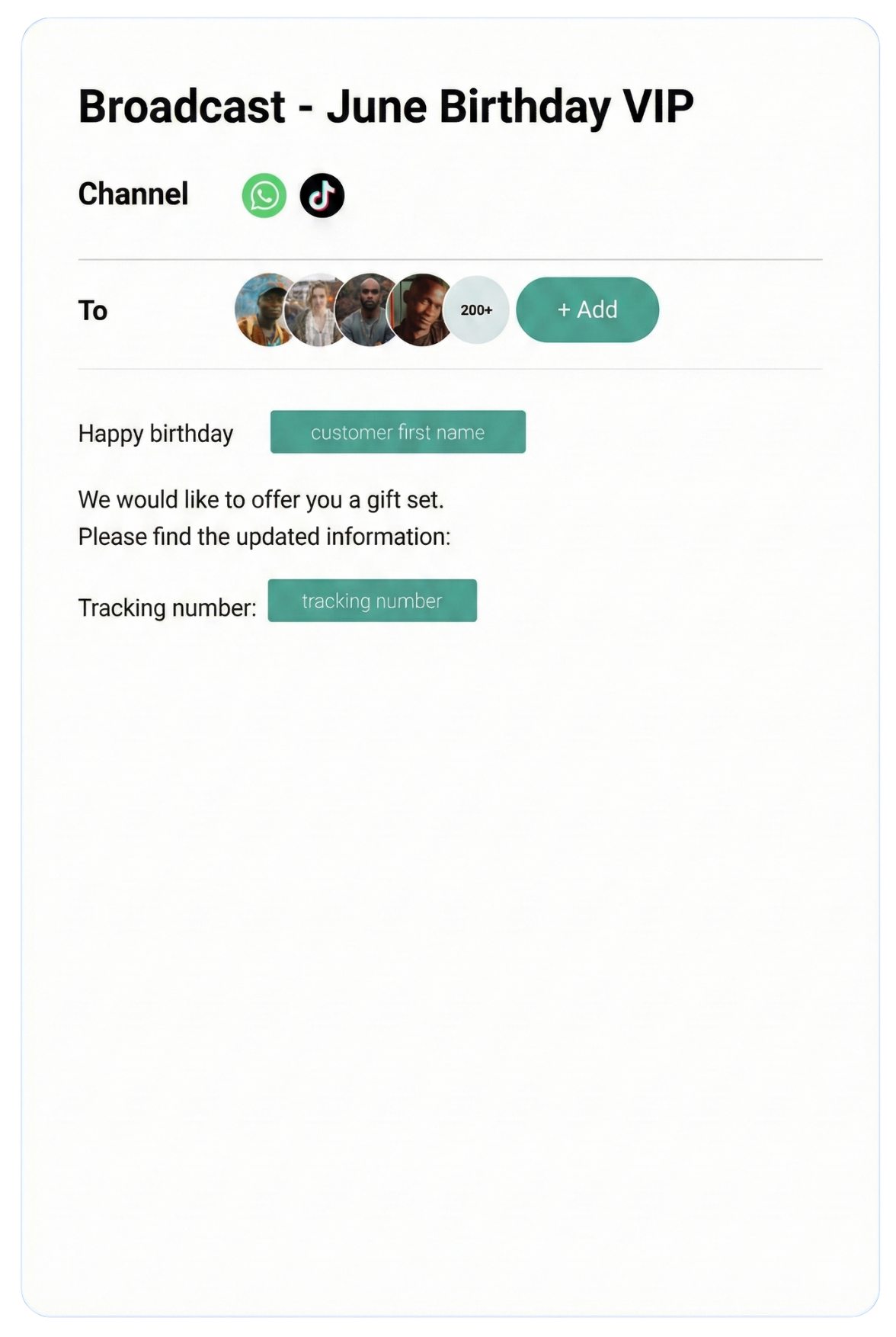Streamline conversations across WhatsApp, Instagram, Facebook Messenger, TikTok, SMS, Email, and more — all in one intelligent platform built to grow your business.





Why ChatDaddy?
Built for the full customer journey
From fast-moving startups to structured enterprises, ChatDadddy adapts to your team’s real-world workflows, not the other way around.
Your Growth Partner
We measure our success by yours. From onboarding to scaling, our team is here to help you unlock the full value of ChatDaddy.
One platform for the entire customer journey
From first touch to repeat purchase, ChatDaddy brings marketing, sales, and support into a single, streamlined workspace.
Scalable, flexible, and easy to use
Get started quickly, integrate with your favorite tools, and scale without adding complexity.
With millions of conversations managed daily, we’ve built a platform that simplifies complexity so your team can focus on growth.
Key Features
Build Around Your Growth
From attracting new prospects to retaining loyal customers, ChatDaddy equips your team with everything you need to grow — in one seamless platform.
From getting customers to converting leads…
Testmonial
Trusted by businesses
Real results—from startups to enterprises—showing that smarter automation not only pays for itself but drives lasting growth.

















